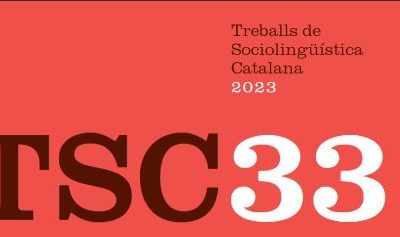TSC: Llengua i economia (2023)
[Altres] Llindar Emili Boix-Fuster 9-11 PDF Secció monogràfica. Llengua i economia Bourdieu i l'economia de la llengua a Catalunya Kathryn A. Woolard 15-31 PDF (English) La llengua dels futurs economistes. Un estudi dels resums de treballs de fi de grau Carme Bach...
Jornada: Les mobilitats com a repte per a la sostenibilitat de les llengües minoritzades: 40 anys de la Revista de Llengua i Dret
Més informació Programa 9.30-9.45 h Obertura institucional • Ismael Peña-López, director de l’Escola d’Administració Pública de Catalunya • Avel·lí Flors Mas, Universitat de Barcelona i director de la Revista de Llengua i Dret • F. Xavier Vila i Moreno, secretari de...
Postdoc UCD en llengua catalana
Des de la UCD (Irlanda) estan cercant un nou investigador postdoctoral en llengua catalana per al seu projecte "Youth Engagement in European Language Preservation, 1900-2020": UCD Post-doctoral Research Fellow Level 1, School of Irish, Celtic Studies and Folklore, 16...
